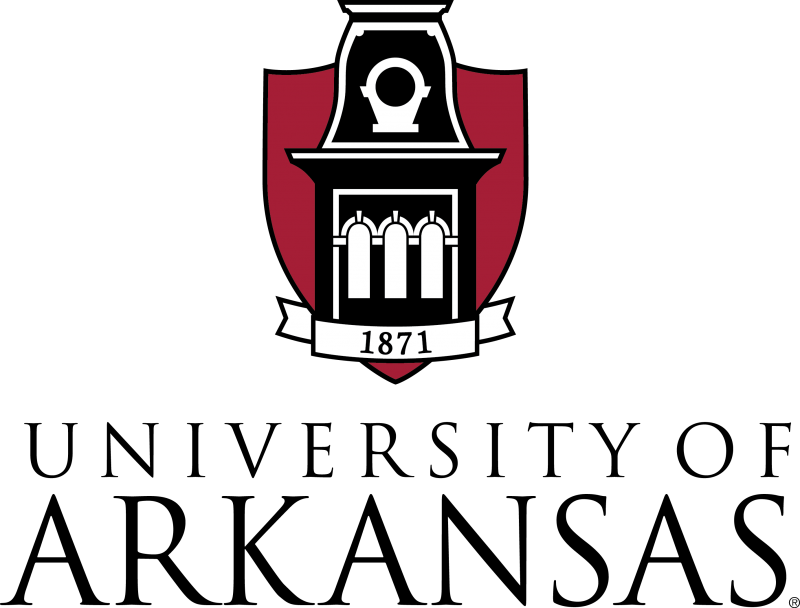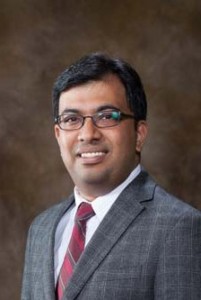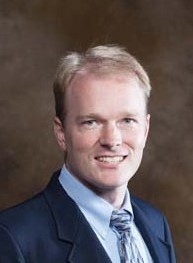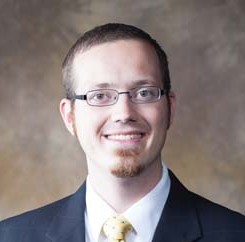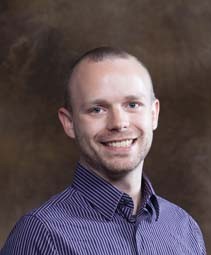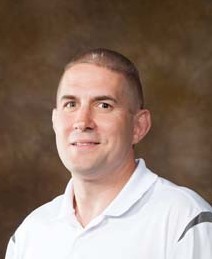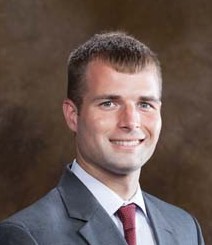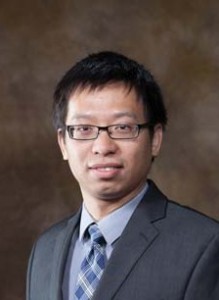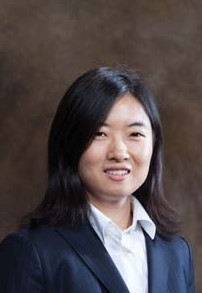Kartik Balachandran received a Ph.D. in bioengineering and an M.S. in mechanical engineering from the Georgia Institute of Technology and a B.A. in engineering from the National University of Singapore. Previously, Balachandran was a postdoctoral fellow at Harvard University’s Wyss Institute for Biologically Inspired Engineering. His primary research interests are in mechanics, mechanobiology and tissue engineering.
Michael Gashler has a Ph.D., an M.S. and a B.S. in computer science from Brigham Young University. In addition, he has worked for the Waterford Institute, developing educational software for children, and he has created programs and patented technology for Microsoft. Gashler’s primary research interest is machine learning, and he is particularly interested in automated systems that can learn to make sense of visual imagery.
David Jensen earned a Ph.D., M.S. and B.S. in mechanical engineering from Oregon State University. His research focuses on incorporating safety into the design of complex systems such as power plants and spacecraft. He focuses on the early stages of design, and looks at ways to include risk assessment in this phase of the process in order to prevent accidents.
Timothy Muldoon has an M.D. from Baylor College of Medicine, a Ph.D. in bioengineering from Rice University and a B.S. in biomedical engineering from Johns Hopkins University. He comes here from Columbia University, where he was a postdoctoral research scientist. Muldoon’s research has focused on high-speed and depth-sensitive optical imaging.
Matthew Patitz holds a Ph.D., an M.S. and a B.S. in computer science from Iowa State University. He comes to the University of Arkansas from the University of Texas Pan American, where he was an assistant professor of computer science. He has also worked as the Software Engineer and Engineering Team Lead for Support.com in Redwood City, Calif.Patitz has authored a number of publications in the field of self-assembly, and he has developed several software packages to support research in this area.
Kelly Sullivan has a Ph.D. in industrial and systems engineering from the University of Florida and an M.S. and B.S. in industrial engineering from the University of Arkansas. His research interests include network optimization and interdiction, integer programming, large-scale optimization, robust optimization, defense applications and optimization in sports.
Tingxin Yan received a Ph.D. in computer science from the University of Massachusetts at Amherst, an M.S. in computer engineering from the Chinese Academy of Sciences Institute of Software and a B.S. in computer engineering from Nanjing University. His research interests are primarily in the areas of mobile and embedded systems, wireless sensor networks, ubiquitous computing, and crowdsourcing.
Jing Yang received a Ph.D. in electrical and computer engineering from the University of Maryland and a B.S. in electrical engineering and information science from the University of Science and Technology of China. Her research interests include information and network theoretical aspects of energy harvesting communication networks; wireless communication theory and networking; service scheduling and energy management in large-scale systems; and high dimensional graph structure learning and its applications to wireless, biological and social networks.
